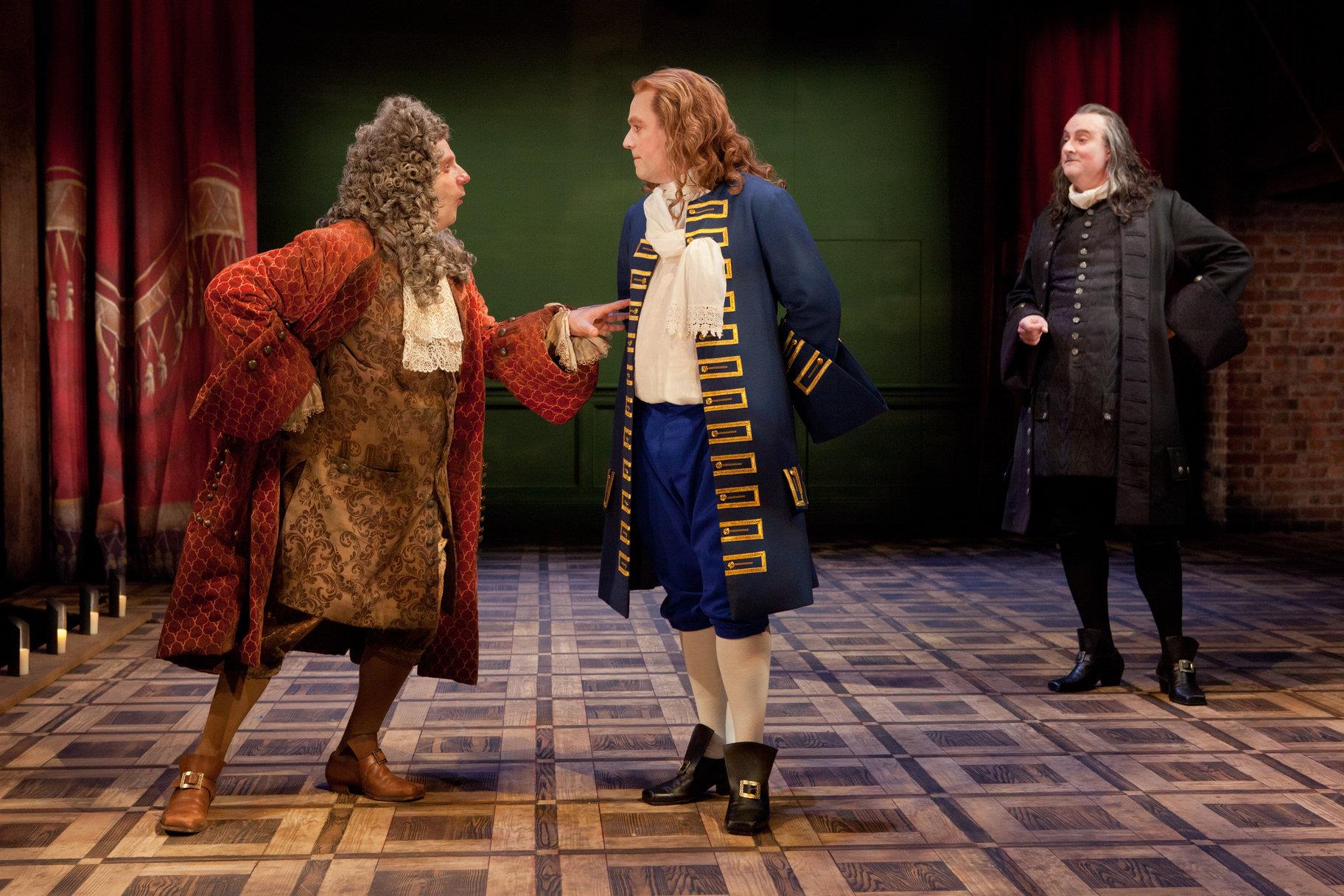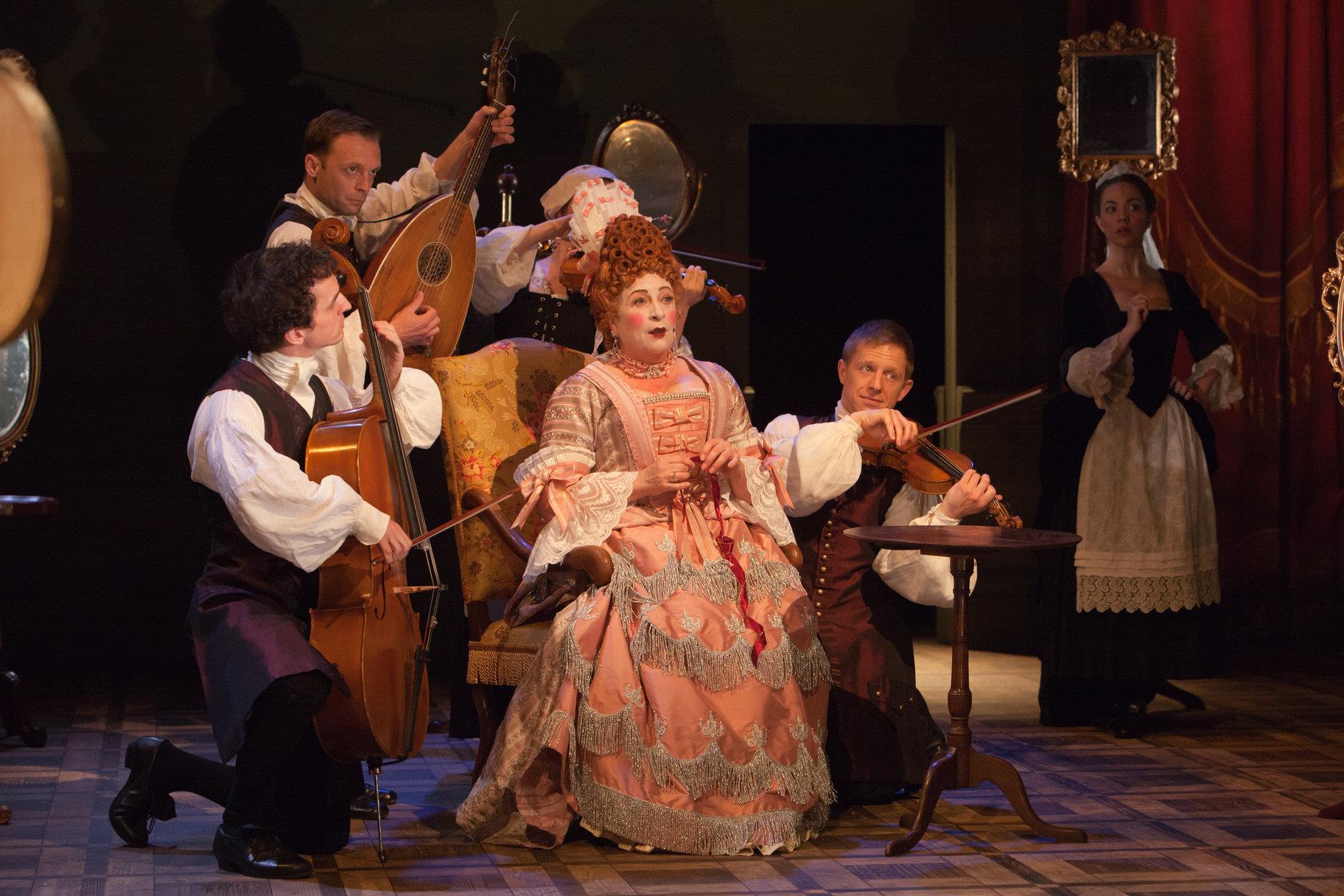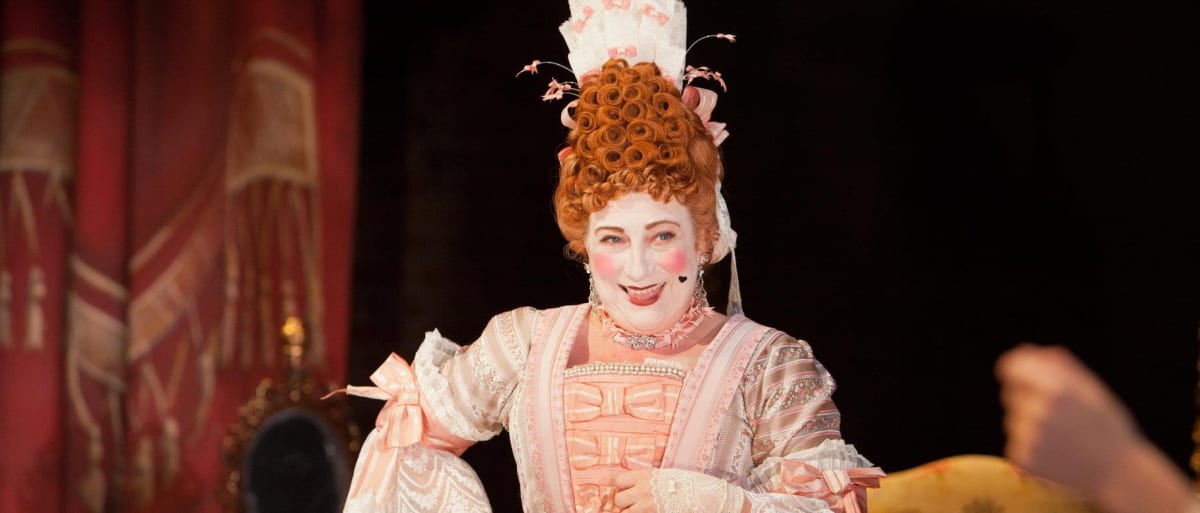The Provoked Wife by John Vanbrugh is given a production that it truly deserves at the RSC, pivoting cleverly between disgust with human mendacity and sympathy for the pain of the human situations that causes it, between the famously riotous lewdness associated with this type of play and a truly insightful and sensitive examination of sexual morals and problems of its characters.
This is one of the more important plays of what might loosely be thought of as the late Restoration drama (first performed in 1797). It could even be perceived as having a seminal influence on later social farce and it has even been argued that it is as a kind of precursor of Oscar Wilde, the avatar of the Wildean/Noel Coward tradition of social comedy and farce. But it is also a tough comedy with plot resolutions that, when thought about, can cause quite a lot of unease.

To the credit of Phillip Breen and his cast and the team of creatives, they all get it about the complexity of Vanbrugh’s thinking. Yes, they camp it up to some degree. Yes, there is some hilarity, there is deliberate theatrical distortion, and the play is staged with some wonderfully mannered posturing and stylization throughout. Every one of the characters has his or her cartoonish moment or six. But the real strength of this production is that it also exposes and makes you consider the wounds of the major characters, what they feel; that at the core it takes them all seriously. The cast is impeccable and the ensemble work ideal. Attractively set in period, with very fine and evocative designs by Mark Bailey, the cast also manages to suggest some of the arch acting conventions of the era in which the play was originally performed. The audience is addressed and involved at several moments. But the conundrum of how to handle living in an unhappy marriage in a time when divorce was almost impossible and conventions of society made it a kind of social suicide is handled with sure understanding and respect for the vivid realism with which Vanbrugh actually studied the main characters: Lady Bute (an immensely attractive and intelligent performance by Alexandra Gilbreath), frustrated, angry, disappointed and wondering if the only chance of any happiness would be a clandestine affair with the loving Constant; Constant (an appealing and rather noble Rufus Hound) himself endlessly hopeful and faithful despite all the frustrations; his friend Heartfree (sincerely and warmly played by John Hodgkinson, a second son, and therefore not very eligible) who suddenly and truly falls in love and is not quite sure how to deal with that; and the object of his love, the knowing yet innocent Belinda (winningly played by Natalie Dew). Add in Lady Fancyful, one of the great comic characters of this type of play, performed with relish, energy and some real sympathy within her grotesquerie by Caroline Quentin on top form, and Jonathan Slinger as a compelling Sir John Brute and the sextet of central characters who drive the plot is complete. Slinger’s cross-dressing sequence is one of the more memorable moments in the play. Jonathan Slinger plays Brute as a drunk who has lost whatever he was as a gentleman when he got married, who not redeemable, yet somehow manages to make one wish he could pull out of it. He’s brutal and unloveable, yet there is an underlying sadness to him, a poignancy at key moments, despite all his scrapes and his violence.

Alexandra Gilbreath and John Hodgkinson are particularly outstanding also in their command of a range of vocal tricks, facial expressions and double takes for conveying the levels of dismay and desire that they are experiencing. Sarah Twomey is the ultimate perfidious French maid with a sure feeling for farce. The comedy is strongly conveyed, but so is the pain of a loveless marriage, thwarted passions, a former beauty who cannot face that she is aging and no longer desirable, and the pull of forbidden desires.
This production proves what an important play this is. The music by composer Paddy Cunneen, especially for the several songs that I am delighted were not cut, is very fine, with the on-stage musicians who appear regularly adding another layer of pleasure and humour. This is both a delightful and a thought-provoking evening of theatre.

